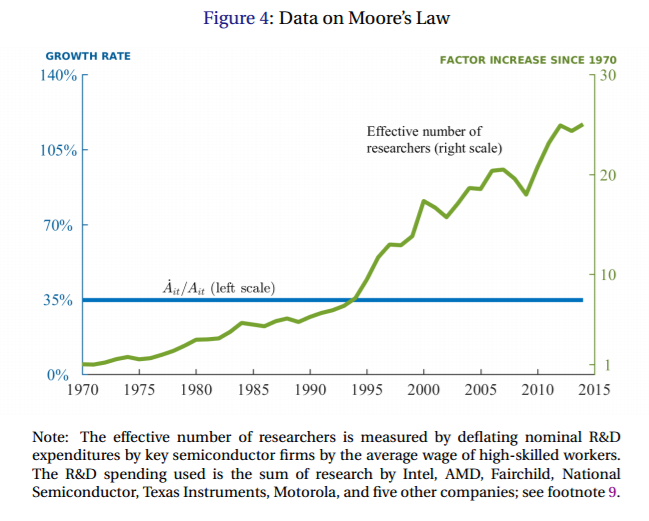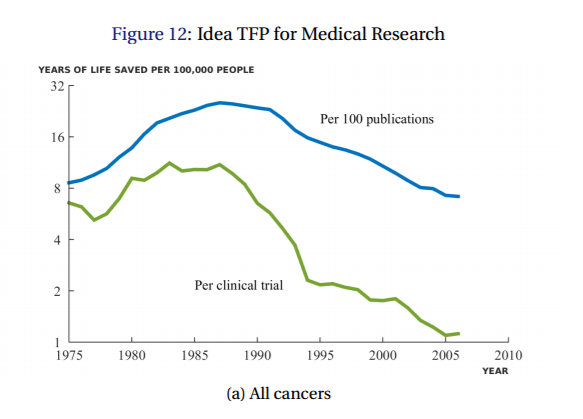Month: December 2016
Monday assorted links
1. Rogue One: an engineering ethics story (has spoilers).
2. Comedians recommend fifty funny movies.
3. Elhanan Helpman: “…globalization does not explain the preponderance of the rise in wage inequality within countries.”
4. “…most growth appears to come from incumbents.”
5. Christine Lagarde found guilty of negligence (NYT). She won’t face a fine or jail sentence, however, and she may not have to leave the IMF.
6. The Centenary of the Russian Revolution should be mourned, not celebrated.
What should I ask Rabbi David Wolpe?
I will be chatting with him for the next Conversation with Tyler, January 26. Here is an excerpt from his bio:
Named the most influential Rabbi in America by Newsweek and one of the 50 most influential Jews in the world by The Jerusalem Post…In addition to serving as the Senior Rabbi of Sinai Temple in LA, Rabbi Wolpe has written eight books, including the national bestseller Making Loss Matter: Creating Meaning in Difficult Times. Rabbi Wolpe also writes a weekly column for Time.com. His writing has been included in The LA Times, The Washington Post, The Huffington Post, and the New York Jewish Week. He has previously taught at the Jewish Theological Seminary of America, the American Jewish University, Hunter College, and UCLA.
Here is his Wikipedia page, and his most recent book is David: The Divided Heart.
This event will be held at the Sixth and I St. Synagogue in Washington, D.C., 7 p.m.; please note they charge admission but that is for them not for me! This will not be a regular feature of the series moving forward, but they do need to cover their costs and we really wanted to use that venue.
So what should I ask David Wolpe?
Peter Cushing, *Rogue One*, and “fake news” will soon get worse
I was watching the excellent Rogue One when suddenly I thought “Wow, they sure found an actor who looks just like Peter Cushing.” As the scene, progressed my thoughts changed to “Tyler, are you sure that Peter Cushing passed away?” As I watching the credits, I saw a thanks to the “Estate of Peter Cushing, OBE,” and so I went back to wondering about the actor, but then why did they thank the estate?
…the face of Peter Cushing, the imposing British actor who died in 1994, lends an especially memorable presence to “Rogue One” by helping to “reprise” his “Star Wars” character, Grand Moff Tarkin, the Imperial governor who practically rules by force of glare, intonation and cheekbone.
…Under director Gareth Edwards, “Rogue One” represents another marker in the decades-long quest for the best CGI-fashioned human replicas. The filmmakers auditioned actors to “play” Cushing’s Tarkin, settling on BBC soap actor Guy Henry. This Tarkin is thus free of the dreaded “dead eye” effect. Lo, though the effects wizards walk through the “uncanny valley,” Tarkin registers as quite alive — even if his facial proportions sometimes read as ever so slightly off from the Original Trilogy. We are nearing the reality of a fully fleshed-out, CGI-enhanced performance long after an actor has passed.
If “Rogue One” wins an Oscar for effects, Cushing should be in no small part why.
When will the slope start where amateur video becomes significantly less trustworthy as well? Or even just “But Mom, I saw him do it on TV!” While we’re at it, how about a symphony orchestra conducted by “Beethoven”?
Sunday assorted links
1. Clothes and fashion in Cuba.
3. Profile of Hans Rosling, recommended.
4. In defense of moderation (NYT).
5. The science of better-tasting milk (WSJ), here is ungated. “By now, she says, consumers mistakenly believe that this is how milk is supposed to taste.”
That was then, this is now, a continuing series
Legislative power grab for me but not for thee edition: remember when HRC was (possibly) considering Elizabeth Warren as her running mate?:
The thing is, ahead of past expected Senate vacancies, rather than looking for a loophole, Massachusetts state legislators have opted to simply change the appointment rules. Multiple times.
In 2004, the Democratic-controlled State House pushed through a bill that stripped then-Gov. Mitt Romney of his power to fill Sen. John Kerry’s seat, presumably with a fellow Republican, as the Democratic senator ran for president. The measure—to keep the seat vacant until a special election was held in 145 to 160 days—was ultimately passed with a veto-overriding two-thirds majority, despite the fact the Kerry ultimately lost to incumbent President George W. Bush.
But then in 2009, with Democrat Deval Patrick as governor, state legislators passed a bill at the behest of Sen. Ted Kennedy to give Patrick the power to choose a replacement for the terminally ill Democrat.
Would Massachusetts legislators change the rules a third time for Warren? According to state House and Senate leaders, there are no such plans.
Do you find this more or less objectionable than the recent changes in North Carolina? Did you complain about them both with proportional fervor? Do you now recognize that “whataboutism” is a highly useful means of testing whether your views and outrages are in fact justified? I enjoyed the earlier comment by Albatross:
My outrage at the power grab in NC is somewhat diminished by my wish that something similar (legislative power grab to limit the power of the incoming executive) were happening at the federal level, too.
How outrageous are the new North Carolina laws?
Here is a summary from Politico:
The state’s Republican-controlled General Assembly passed the bills this week during a special session. The new laws reduce the number of positions the governor can hire and fire at will from 1,500 to 300, strip the governor’s party of the power to control the state board of elections, require legislative approval of gubernatorial cabinet appointments, and move the power to appoint trustees for the University of North Carolina to the legislature.
The first sounds like a good change, as in general the professional bureaucracy in American politics should be more powerful, as it is in Western Europe. The second clause — power over elections — sounds like a simple power grab, but can I say I find it an inferior arrangement to vest this responsibility with the legislature? No, and note the new deal gives each party equal representation on the election commission (otherwise the Democrats would hold a majority). The trustee appointment change I find it hard to get worked up about, though it does seem to me more naturally the prerogative of the executive, but the state constitution gives trustee appointment rights to the legislature.
How about “require legislative approval of gubernatorial cabinet appointments,” which sounds pretty severe?
Well, check out the North Carolina state constitution: “Appointments. The Governor shall nominate and by and with the advice and consent of a majority of the Senators appoint all officers whose appointments are not otherwise provided for.” [Later sections seem to cover the “appointments…otherwise provided for.”] Furthermore, this seems like pretty standard practice at various levels of American government.
Perhaps the Republicans have good legal advice, and are likely to win this in the courts, as the source behind the last link is suggesting. As a commentator, a good starting question is whether you have in fact read the North Carolina state constitution.
Overall the story seems to be that the legislature is — within the provisions of the state constitution — seizing more power for the legislature. (You don’t have to like that, given some of the other Republican stances, but don’t confuse the different issues here.) Don’t presidents and governors try to do the same? Succeed in doing the same? Is it perhaps worth criticizing the state constitution, rather than just condemning the Republicans for exercising constitutional powers? Here is a link outlining many of the power grabs in previous North Carolina history, including by the Democrats.
Have your feelings about the filibuster changed as of late?
Is it so much worse if such shenanigans are done in a lame duck period? Would it have been so awful if Clinton had won the presidential election and TPP had passed during the lame duck session, as many people were talking about? Or if the nomination of Merrick Garland to the Supreme Court had been approved? Do we all condemn the flood of “midnight regulations” that come during each federal lame duck session?
I am very willing to consider limiting the power of lame duck sessions. And I am very willing to believe that the North Carolina legislature made moves in the wrong direction from a utilitarian and also public legitimacy point of view. Furthermore, I am also no expert in North Carolina constitutional law and I would gladly be set straight if I am overlooking some relevant facts on these issues.
In the meantime, I don’t quite see this as a coup d’etat, it seems like a pretty traditional power grab within established constitutional structures, it’s not the Republicans heralding the end of constitutional government in the United States, and I’m not sure that the critics are being entirely consistent in applying the principles articulated in their shrillness. The critical commentary here really does need to up its game. If your argument is simply “I don’t want groups I disagree with to take more power through legitimate means,” well by all means say so!
As for my summary view, the legislative actions do seem unwise to me, they seem to be coming at an especially fraught time, I don’t favor all of the other policy preferences of this legislature, and I think they are extending what is already a series of unwise precedents.
Here are my favorite things North Carolina, none of them refer to politics.
Focality and the evolution of language culture that is Swiss
In a controversial election, Donald Trump has beaten off stiff competition from “Netflix”, “vegan” and “deportation” to be chosen as “sign of the year” by the Swiss Deaf Association.
“The deciding factor was the sign’s simplicity, i.e. mimicking Trump’s extraordinary thatch of hair,” said Christian Gremaud, who led the organisation’s campaign. “And also the fact that the sign has really established itself in just a short period of time across Switzerland.”
It is the first time the Swiss Deaf Association has awarded a sign of the year.
The association explained that names or terms in the media are at first spelt out using a finger alphabet, but once the word establishes itself, deaf people come up with a sign for it. Like spoken words, if it proves popular or useful, it spreads.
Every year some 250 new signs are added to the deaf dictionary. These are decided by a commission of experts, which includes teachers, linguists and researchers.
Here is the Swiss link, via Michelle Dawson.
Saturday assorted links
A Very Depressing Paper on the Great Stagnation
Are Ideas Getting Harder to Find? Yes, say Bloom, Jones, Van Reenen, and Webb. A well known fact about US economic growth is that it has been relatively constant over a hundred years or more. Yet we also know that the number of researchers has increased greatly over the same time period. More researchers and the same growth rate suggest a declining productivity of ideas. Jones made this point in a much earlier paper that has long nagged at me. With just one country and rising world growth rates, however, I wondered if the US had somehow had offsetting factors. Bloom, Jones, Van Reenen and Webb, however, now return to the same issue with a more detailed investigation of specific industries and the picture isn’t pretty.
Moore’s law (increasing transistors per CPU) is often trotted out as the stock example of an amazing increase in productivity and it is when measured on the output side. But when you look at Moore’s law from the perspective of inputs what we see is a tremendous decline in idea productivity.
The striking fact, shown in Figure 4, is that research effort has risen by a factor of 25 since 1970. This massive increase occurs while the growth rate of chip density is more or less stable: the constant exponential growth implied by Moore’s Law has been achieved only by a staggering increase in the amount of resources devoted to pushing the frontier forward.

In some ways Moore’s law is the least disturbing trend because massive increases in researchers has at least kept growth constant. In other areas, growth is slowing despite many more researchers.
Agricultural yields, for example, are increasing but the rate is constant or declining despite big increases in the number of researchers.

Since 1950 life expectancy at birth has been growing at a remarkably steady rate of about 1.8 years per decade but that growth has only been bought by ever increasing number of researchers. Here, for example, is cancer mortality as function of the number of publications or clinical trials. Each clinical trial used to be associated with ~8 lives saved per 100,000 people but today a new clinical trial is associated with only ~1 life saved per 100,000. 
And how is this for a depressing summary sentence:
…the economy has to double its research efforts every 13 years just to maintain the same overall rate of economic growth.
In my TED talk and in Launching I pointed to increased market size and increased wealth in developing countries as two factors which increase the number of researchers and therefore increase the global flow of ideas. That remains true. Indeed, if Bloom et al. are correct then even more than before we can’t afford to waste minds. To maximize growth we need to draw on all the world’s brain power and that means we need a world of peace, trade and the free flow of ideas.
Nevertheless the Bloom et al findings cut optimism. The idea of the Singularity, for example, comes from projecting constant or increasing growth rates into the future but if it takes ever more researchers just to keep growth rates from falling then growth must slow as we run out of researchers. As China and India become wealthy the number of researchers will increase but better institutions can only push lower growth rates into the future temporarily. Most frighteningly, can we sustain a world of peace, trade and the free flow of ideas with lower growth rates?
Just because idea production has become more difficult in the past, however, doesn’t make it necessarily so forever. We could be in a slump. Breakthroughs in ideas for improving idea production could raise growth rates. Genetic engineering to increase IQ could radically increase growth. Artificial intelligence or brain emulations could greatly increase ideas and growth, especially as we can create AIs or EMs faster at far lower cost than we can create more natural intelligences. That sounds great but if computers and the Internet haven’t already had such an effect one wonders how long we will have to wait to break the slump.
I told you the paper was depressing.
U.S.A. fact of the day
Poverty is higher among Appalachians than the national average, but not by much — Kentucky has a poverty rate of 18.5% and West Virginia 17.9%, compared to a national average of 14.7%.
That is from Bill Easterly. The difference of course would be smaller yet if we adjusted the poverty level by regional rather than national CPIs.
How critical should we be of Vladimir Putin?
Both Republicans and Democrats are mired in contradictions. Let’s say you argue Putin really did “hack the election” in a meaningful way. You probably then ought to conclude that Obama was truly a deeply negligent president, in a manner unprecedented in recent times. (And since HRC was his Secretary of State, and more or less ran on a continuation of his regime, this oddly gives you the best case for voting for Trump! Can you see Trump letting Putin deny Ivanka the presidency in this way?) In this view, not only has Obama had only a lukewarm response to the hack, but he emboldened Putin over the last eight years, given his relative non-responses in Ukraine, Syria, the “red line,” and so on. Romney and Kasparov then have to be seen as right in their view of both Putin and Obama. Democrats of course are mostly unwilling to accept these conclusions, but the more seriously they talk of a decisive hack the closer they come to them.
Now those aren’t my views, but they should be the views of many of the Democrats I am reading. To avoid those conclusions, the Democrats would have to play down the import of the hack.
Republicans try to minimize the hack, noting correctly that a) it released only true information, and b) bad email practices by John Podesta did not in fact swing the election. The Republicans don’t quite put it this way, but the main problem was with the American media and its ongoing insinuations of more sinister goings-on than turned up in the evidence. If you run a media without an obsession on the substance of policy, that can happen and in essence we manipulated ourselves. What’s the ratio of MR posts on economic and foreign policy and Star Wars to MR posts on Hillary’s email? The NYT and WaPo media could do the same but of course they don’t, neither does Breitbart, and that choice of emphasis is a much bigger problem than “fake news.” In that regard you can exonerate Putin.
Yet in other contexts, the Republicans insist, rightly, as seeing Putin’s behavior as establishing a broader pattern of norm violations and moving from one transgression to the next. If we insist on sticking with that bigger picture framing, the Russian hack then becomes more serious again, even though we can talk down its impact as a one-off event. What indeed will be next?
The “intelligent hawk” position takes a whacking too. How can we get tough with Russia when we will have had at least twelve years of American presidents (Obama plus Trump) who seem totally unwilling to do so? And ultimately that unwillingness is backed up by voter apathy. I see some anti-Trump marches, but there aren’t many “get tough with Vlad” demonstrations.
If American voters see their presidents won’t get tough with Putin, shouldn’t they indeed start liking Putin more? To be sure, some of this boost in Putin’s popularity comes from the partisan perception that he is pro-Trump and anti-Hillary. But consider the more intellectually honest slice of voter opinion. Shouldn’t they also think that, if we are unwilling to be tough with Putin, we might as well try to get along with him and tolerate him? That means trying to like him more too, just as you might try to like your unruly next door neighbors, once you decided it is not worth the trouble to move away from them.
The hawkish position, precisely by requiring sufficiently high levels of hawkish credibility, can collapse into a kind of cowardice quite readily.
So who then isn’t embarrassed? How about “the hack was semi-serious, Obama is semi-deeply negligent, the apathetic, complacent public is the biggest problem, hawkish credibility cannot be earned back easily, and the election was nonetheless legitimate” as a reasonable default stance?
Oddly enough, I don’t think Trump and Putin will get along very well. Putin still needs an external enemy, young Russians do not love the United States, and in foreign policy Trump is likely to want the impossible. How will a Sylvester Stallone fan be global policeman with few trusting allies and little credibility? It seems we are going to find out.
What if they made a great Star Wars movie and nobody noticed or cared?
That is how I felt watching Rogue One, which the audience seemed largely indifferent to. But contrary to what many of the reviews suggest, the plot is not especially muddled, the drama is legitimate, and the ending more than satisfactory. The visuals are spectacular, with the digital work supplemented by on-site filming in the Hashemite Kingdom of Jordan, Iceland, and the Maldives. If you have a good memory for visual images, you will notice many parallels, including homages to Kurosawa and a number of classic war movies. From the Star Wars franchise itself, episodes 1-3 are treated as iconic as are 4-6. It’s much more of a Star Wars movie than the marketing has been letting on, and indeed this is the real Star Wars movie that many of you have been waiting for. (Maybe the worse the “sequence” movies get, the better the “knock-offs” become, a’la Frank Ramsey, a nice trick they are playing here.) It’s not perfect, but had they made this instead of Return of the Jedi, at the time I would have been “happy enough.”
#ConfessYourUnpopularOpinion
Stephen Stills is underrated.
He was the driving force behind three of the best (non-Beatles) songs of the 1960s/early 1970s: Bluebird, Wooden Ships, and Suite: Judy Blue Eyes; in the process he anchored two of the major super-groups of that era. “For What It’s Worth” is one of the most recognizable and oft-used iconic songs of the 1960s. “Helplessly Hoping” is good too. He was an underrated guitarist, try Super Session, with Michael Bloomfield and Al Kooper.
One of his problems may be that his underlying personal aesthetic is often corny and unappealing (“Love the One You’re With,” “Change Partners”), and that comes out all too strongly when he is removed from monitoring collaborators of equal or greater stature.
On satellite radio the other day I heard the acoustic solo demo version of Suite: Judy Blues Eyes (try “Stephen Stills Suite Judy Blue Eyes” on Spotify) and thought “People don’t praise this guy enough!” In general, artists should be judged by their best work, and his is very good indeed. I’d rather hear one of those Stills songs than anything by the Rolling Stones.
Friday assorted links
1. Economic Report of the President, 2017 (pdf).
3. Become a Hoover National Fellow?
4. Were the Crusades good for civil society? (pdf)
6. The bogus luxury home buyer (WSJ): “The buyer had been arriving on a city bus each time, which made me suspicious.”
Gurgaon: India’s Private City
My paper with Shruti Rajagopolan, Lessons from Gurgaon, India’s private city, is given visual force and flavor by an excellent new video from Reason called Gurgaon: India’s Private City.



